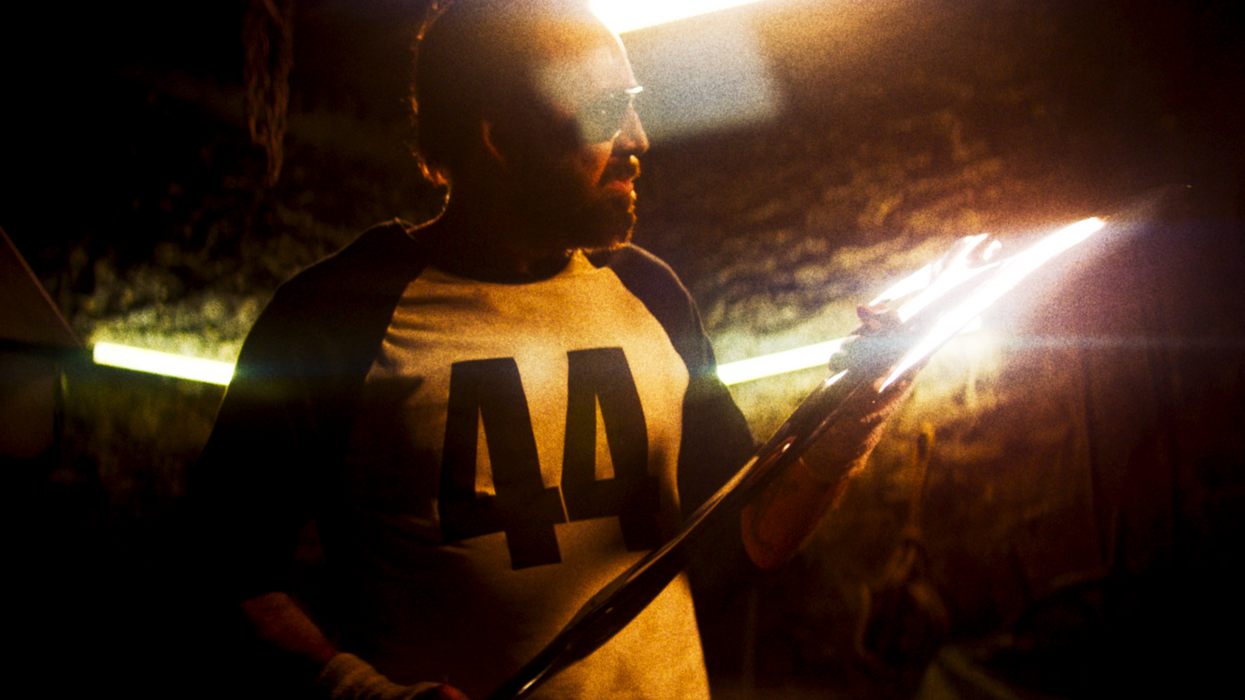'Mandy' Director Defines the Role of Composer in Tribute to Jóhann Jóhannsson
Panos Cosmatos shares important insights on how a composer's work can transcend his duties.

If you are an avid Indie Film Weekly listener, you may have heard that one of my favorite films of the year is the terrifyingly psychedelic Nicolas Cage revenge romp, Mandy. What you may not know, however, is that a healthy portion of my salary here at No Film School goes towards feeding a severe addiction to collecting records.
If you're like me in any way, let me first start by saying, "I'm sorry, I understand and I'm here for you." Now let me point your attention to Lakeshore Record's beautifully packaged translucent red pressing of Jóhann Jóhannsson's incredible score for Mandy. Pretty nice, huh? Maybe you should buy it. I sure did.

This score is important for a number of reasons. Reason number one: it kicks some major ass. But it's also the final work of the esteemed composer who tragically took his own life in February 2018, weeks after the film premiered at the Sundance Film Festival.
Jóhannssonn is widely recognized as one of the best modern film composers. His score to The Theory Of Everything won a Golden Globe for Best Original Score and was nominated for the same Academy Award. His work on Sicario earned him another Academy Award nomination while his other notable soundtracks include Denis Villeneuve's Arrival and Prisoners.
Included in the package is an insert with some liner notes, credits and a really touching tribute to Jóhannssonn from Mandy director Panos Cosmatos. The tribute delivers some pretty remarkable sentiments on the role of the composer and the process of creating a score that both directors and aspiring composers can take to heart. Read it, in full, below.
"Most film composers work solely to enhance the actions and emotions on screen. Some transcend this and can create a tangible and memorable atmosphere as well."
I miss Johann. He reminded me of my father in some ways. Gruff on the surface, but at his core he was sensitive and kind.
Most film composers work solely to enhance the actions and emotions on screen. Some transcend this and can create a tangible and memorable atmosphere as well. The composer whose work seems to metaphysically flow from and within the images themselves is the rarest breed. Rare because there is alchemy at work. Rare because it requires an almost preternatural sensitivity and openness to the images they are working with and the skill to articulate it. Johann was such a composer.
On one occasion I said to him, “I want it to sound like being a kid in the back seat of your friends’ big brother’s Trans-Am and it smells like weed, leather and that yellow pine tree air freshener. You’re kinda scared but it’s thrilling in a way, too.” Without hesitating he responded, “I know exactly what you mean.” Towards the end, he told me Mandy was very important to him personally, and it stood to reason. Despite the delicate beauty of much of his work, Johann loved heavy metal and psychotronic cinema. He was a rebel at heart.
Johann went above and beyond, and I suspect to the limits of his sanity, to make the music for this movie. His words and his actions made him more than a great collaborator, they made him like a brother to me. I’m sad our time together was so brief but I’m very proud of what he accomplished on Mandy and I believe he was too.
Of course, the definitive version of a score is what appears in the film itself, densely intertwined with the images it was created to live and breathe with. Soundtrack albums are their own beast though, whose magic lies in these sounds being freed from the warm, shadowy embrace of the screen to live in the real world, among us, in a prism of infinite contexts.
When you listen to this album, I’d like to think of it as Johann being out there. In a way, with you.
- Panos Cosmatos, Director











